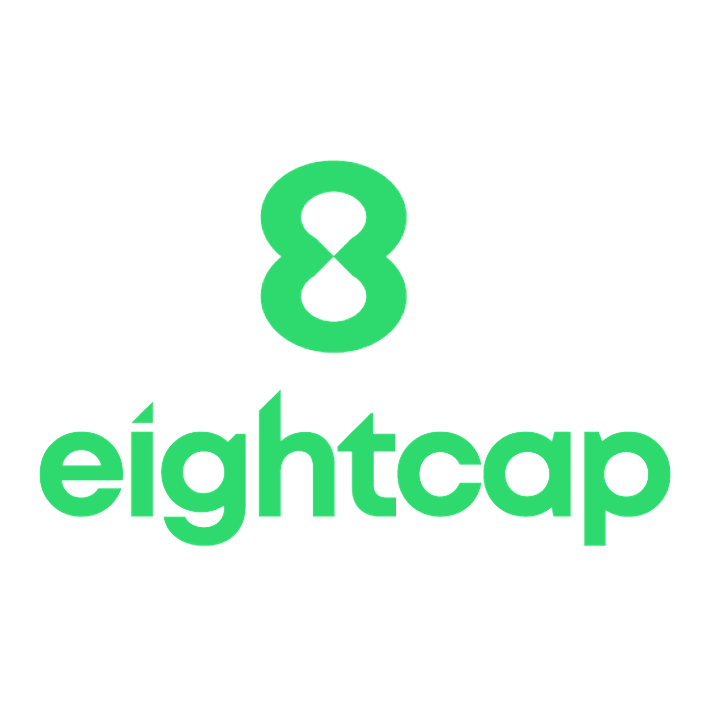What are the best crypto derivative exchanges in 2025? If you are keen to up the stakes and trade crypto futures and options, you may be on the lookout for a specialized platform to best suit your needs. Here are the top option on the market today.
- What are the top crypto derivatives platforms?
- Plus500US
- OKX
- Binance
- Eightcap
- Huobi
- Pionex
- BitMEX
- What are crypto derivatives exchanges?
- Crypto futures
- Crypto options
- Perpetual swaps
- CFDs
- Taker and maker fees
- Margin trading
- Other Bitcoin futures exchanges
- Other derivatives exchanges
- What is the best crypto derivatives exchange?
- Frequently asked questions
What are the top crypto derivatives platforms?
Plus500US
Plus500US is a multi-asset platform that offers a futures trading platform for U.S. residents. With it, you can trade futures contracts for cryptocurrencies like Bitcoin, as well as metals, commodities, and more.
Futures contracts are offered through Plus500US, which the NFA and CFTC regulate. Additionally, you can take comfort in knowing that the company segregates its customers’ assets, which gives you some level of security.
Plus500 Futures charges commission-based fees. A Standard contract costs $0.89, while a Micro contract costs $0.49. The liquidation fee is $10 per contract. There are also NFA fees ($0.02) per side per contract. Plus500 does not charge fees for deposits or withdrawals (except for wire transfers), routing, or inactivity.
Features include:
• WebTrader platform and Plus500 mobile app
• Standard mini and micro contracts
• Unlimited demo trading
• Futures Academy (free educational content)
• Risk management tools
• 24/7 customer support via live chat and email
Hong Kong-based OKX is another major exchange that has delved into crypto derivatives in order to keep up with its rivals. It offers all three types of contract, futures, options, and swaps.
It has crypto-margined contracts and Tether margined futures on weekly, bi-weekly, quarterly, and bi-quarterly time periods. Futures contracts are for the following crypto assets: Bitcoin, Ethereum, XRP, Litecoin, EOS, Ethereum Classic, Bitcoin Cash, BSV, and Tron. USDT margined contracts are also available for these nine assets.
Options are only available for Bitcoin and Ether, but there are perpetual swaps for the above assets and fourteen altcoins, including Cardano, Stellar, Monero, Dash, Link, NEO, IOTA, and Zcash. OKX has one of the largest selections of altcoins for futures contracts.
Binance
Industry leader Binance has also quickly launched a wide range of crypto derivatives. It has cited strong demand for crypto futures and other contracts and has aggressively expanded its offerings. The futures trading platform was launched in September 2019 and has expanded from just three initial contracts to an entire range of crypto derivatives.
Today, Binance offers about 100 perpetual contracts. The exchange notes that perpetual contracts on Binance futures are similar to the trading pairs on the spot market, priced and settled similarly.
The highest leverage is available on the BTC contract at 125x. Moreover, there are minimum and maximum contract quantities for each asset, and they are subject to margin rates and liquidation fees. Initial margin deposits are calculated using the leverage selected by the trader, and the account must have a suitable balance to cover liquidations.
Binance also offers a number of bonuses and referral rewards for introducing new derivatives clients.
Eightcap
The platform offers crypto derivatives and several other assets as an award-winning regulated platform. The industry-recognized broker is regulated by the FCA, ASIC, CySEC, and SCB, and its MetaTrader 4 and MetaTrader 5 trading platforms have received good reviews on both Trustpilot and Google.
Eightcap lets you trade CFDs on several cryptos, FX, and indices. Additionally, there are over 250 cryptocurrencies available and over 1000 financial instruments in total. There are crypto-crosses and indices for those interested in only crypto, with leverage increasing to 1:20.
Executions are fast, and the spreads are very competitive, starting from 0 pip. Its Capitalise feature lets you automate your trading without needing to code, one of the more salient features.
You don’t need a crypto wallet either, as you can add funds through PayPal, Credit/Debit card, Skrill, Neteller, and more. Funding and swift withdrawal options are plentiful.
Furthermore, Eightcap offers 24-hour support, five days a week. User reviews on Google and Trustpilot showcase positive reviews from its users. There is even a free demo if you want to test the platform first.
Huobi
HTX is a new player in the crypto derivatives scene and, according to reports, rebranded its platform to Huobi Futures in May 2020. To keep up with the two industry leaders above, Huobi has expanded its range of derivatives recently.
The Singapore-based crypto exchange offers futures contracts for Bitcoin, Ethereum, Bitcoin Cash, Bitcoin SV, EOS, Litecoin, XRP, Ethereum Classic, and Tron. Moreover, contracts come in variants of weekly, bi-weekly, quarterly, and perpetual swaps. BTC futures are leveraged at up to 20x while the swaps are 125x maximum.
The rest have 20x for the futures and 75x leverage limits for the swaps. Swaps are also available for a few other altcoins, including Chainlink, Cardano, Dash, and Zcash.
Pionex
While Pionex allows users to trade manually, the stand-out feature of this derivatives exchange comes in the form of crypto trading bots. The platform has 16 free, built-in bots, allowing users to leverage the latest technology to buy low and sell high 24/7.
The platform also provides an academy stacked full of tutorials and further reading, helping traders improve their skills and utilize the platform’s feature-rich offerings to maximize profits and improve their trading ability.
With monthly trading volumes exceeding $50 billion, over 100 million trades, and users in 100 countries and regions around the world, Pionex is fast becoming the go-to platform for smart traders looking to leverage AI technology to boost performance.
The platform comes totally free, requiring no monthly subscription. Instead, the platform charges a commission on trades, taking 0.02% for maker fees 0.05% for taker fees on futures, and 0.5% for spot trades. Moreover, users can access Pionex via desktop and a slick mobile app.
BitMEX
The next option is one of the world’s most popular crypto exchanges for derivatives and leveraged trading. BitMEX offers a wide range of derivative products for several different crypto assets with different leverage levels.
For traditional futures, there are contracts for Bitcoin, Ethereum, Bitcoin Cash, Litecoin, XRP, EOS, Cardano, and Tron. BTC has the highest available leverage at 100x, and the rest are 20x, aside from LTC, which has 33x. BitMEX charges between 0.05% and 0.25% as maker and taker fees.
Perpetual swap contracts are also available for Bitcoin, Ethereum, and XRP, with BTC leveraged up to 100x. Be that as it may, the documentation adds that funding is exchanged between longs and shorts for perpetual contracts over discrete funding intervals.
The exchange has also recently launched something called quanto futures. These contracts have a fixed Bitcoin multiplier regardless of the Ethereum price in dollars, allowing traders to long or short the exchange rate without touching either currency.
BitMEX has taken a little heat recently for allowing such highly leveraged trading, as it also comes with high risk and elevated chances of liquidation due to market volatility. There are enough risk warnings on the platform, though, and there is a ‘maintenance margin’ for most contracts, so there is enough crypto in the account to cover any losses.
What are crypto derivatives exchanges?
A derivative is essentially a contract that derives its value from the performance of one or more underlying assets. In this case the assets are Bitcoin and cryptocurrencies. A crypto derivatives exchange is an exchange that offers crypto derivatives. Derivatives offer investors a capital-efficient way of gaining exposure to cryptocurrencies without the technicalities of trading and the skills to read crypto charts.
Derivatives contracts can be broken down into three major categories though they have many different options.
- Futures
- Options
- Swaps

Crypto futures
A futures contract is an agreement to sell something at a future date at a price that is decided in the present. In the case of Bitcoin and other crypto assets, futures are listed on an exchange that becomes the intermediary.
Exchange contracts come in a pre-decided format, have pre-decided sizes, and have pre-decided expirations. The two first exchanges to offer futures for the price of Bitcoin were the Chicago Board Options Exchange (CBOE), and the Chicago Mercantile Exchange (CME), in December 2017. The latter is now the market leader for institutional BTC futures.
All futures contracts have an expiry date that denotes when the buyer and seller settle their outstanding positions.
Crypto options
Options are very similar to futures. Instead of being obligated to sell at a certain time, this contract type provides the option not to. Only one party is bound by the contract, meaning that the seller or exchange has an obligation to deliver the crypto-asset should the buyer choose to exercise their right to buy.
Options are classified as either a put or a call. The call option grants the buyer the right, but not the obligation, to buy the asset at a later date at a given price, whereas a put gives the right to sell at a later date or specified price.
Perpetual swaps
Swaps are a little more complicated. People often call them “perpetual contracts, ” essentially futures contracts with no expiry or settlement. Perpetual swaps are designed to be the same as spot trading prices, but there are a number of advantages over spot trading.
This type of contract uses leverage cheaply and easily, shorting the asset is also made easier, and liquidity on perpetual swaps is usually much higher. Leveraged contracts with volatile cryptocurrencies are extremely high risk, however, since small changes in market prices can quickly result in liquidation.
Perpetual swap markets are valued by requiring traders to hold enough of the underlying asset to cover their orders. Assets such as Bitcoin are not physically bought with these contracts but must be held in order to cover them in the event of a liquidation.
CFDs
Other types of cryptocurrency derivatives exist, such as contracts for differences (CFDs). Hence, these are cash-settled derivative contracts in which the parties seek to secure a profit or avoid a loss by agreeing to exchange the difference in price between the value of the crypto asset CFD contract at its beginning and its end.
Taker and maker fees

To trade derivatives contracts, most exchanges will charge taker and maker fees. When a trade takes place, it is usually between two parties. The maker (referred to as “market maker”) provides liquidity by placing limit orders on the order books prior to the trade. Makers are rewarded for this by being charged lower fees.
The taker ‘takes’ that liquidity by matching maker orders and placing market orders to buy or sell orders sitting on the books immediately. There is a slightly higher fee for being the taker.
The maker-taker model encourages liquidity by rewarding the makers with a discounted fee, resulting in a tighter market spread due to the increased incentive for makers to outbid each other. Therefore, the higher fee that the taker pays is usually offset by the better prices this tighter spread provides.
In derivatives trading, the exchanges often charge maker and taker fees to encourage this liquidity and offset undesirable behavior.
Margin trading
Margin trading refers to the use of leveraged funds offered by the exchange. In other words, leverage is a loan provided to an investor by an exchange that controls the trader’s account. With this in mind, BitMEX and Binance offer crypto derivatives with up to 125 times leverage which means the position is magnified by this amount. It also means that losses are magnified as leveraged trading is very risky and the ‘house’ usually wins!
Crypto derivatives can be difficult to understand. Learn everything you need to know in the BeInCrypto Telegram group.

Other Bitcoin futures exchanges
There are a number of other exchanges that offer crypto derivatives, and some specialize in only those products.
Deribit
Deribit was launched in 2016 in Europe and was one of the first exchanges to offer Bitcoin futures and options. BTC USD-denominated futures contracts on Deribit are cash-settled rather than payouts, which are the physical delivery of Bitcoin.
Additionally, the exchange offers quarterly Bitcoin and Ethereum futures. There are also leveraged option contracts for the two assets and cash-settled BTC and ETH swaps.
Fees align with industry standards, and withdrawals are processed on the fly through a hot wallet. Regarding liquidity, Deribit is a small fish with BitMEX, for example, having around fifty times the volume.
Other derivatives exchanges
Other smaller derivatives exchanges include Bybit, PrimeXBT, bitForex, and bitZ. There are also other traditional crypto exchanges offering futures contracts. These include Kraken, Bithumb, and Bitfinex, though their volumes are much lower than the bigger players listed above.
Institutional behemoths include the Chicago Board Options Exchange (CBOE), the Chicago Mercantile Exchange (CME), and the Intercontinental Exchange’s Bakkt. They tend to be suited to large institutions rather than individual traders and investors.
What is the best crypto derivatives exchange?
The best crypto derivatives exchange is the best one for you. In this market, there is no such thing as a panacea. Maybe you like the liquidity of one exchange and the fees of another. It’s all up to your personal preference. Nevertheless, it is important to remember that no matter which exchange you choose, you always choose to trade responsibly and never risk more than you can comfortably afford to lose.
Frequently asked questions
What are crypto derivatives?
Are there any decentralized crypto derivative exchanges?
What are derivatives?
Are derivatives risky?
Disclaimer
In line with the Trust Project guidelines, the educational content on this website is offered in good faith and for general information purposes only. BeInCrypto prioritizes providing high-quality information, taking the time to research and create informative content for readers. While partners may reward the company with commissions for placements in articles, these commissions do not influence the unbiased, honest, and helpful content creation process. Any action taken by the reader based on this information is strictly at their own risk. Please note that our Terms and Conditions, Privacy Policy, and Disclaimers have been updated.












